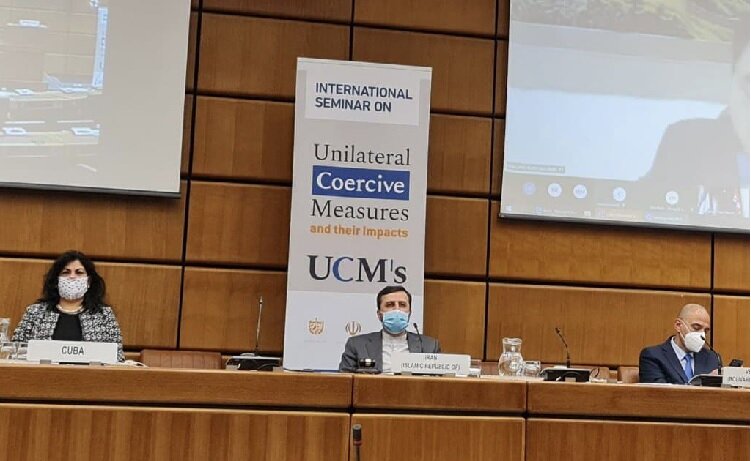19 countries call for halt in UCMs amid Covid-19

TEHRAN – A number of countries, some of them under United States sanctions, issued a joint statement on Monday calling for the lifting or suspension of sanctions in light of the Covid-19 pandemic.
The statement was issued during the International Seminar on Unilateral Coercive Measures (UCMs) and their Impacts in the Context of COVID-19 Pandemic. The statement was issued on behalf of Belarus, Bolivia, Burundi, Cuba, Eritrea, Iran, Laos, China, Myanmar, Namibia, Nicaragua, North Korea, Pakistan, Palestine, Russia, South Africa, Syria, Venezuela, and Zimbabwe.
“Despite the fact that the response to and recovery from COVID-19 requires global solidarity and international cooperation, we continue to witness the use of unilateral coercive measures (UCMs), especially of secondary and extra-territorial implications, which are in flagrant breach of the basic purposes and principles of the United Nations Charter, International Law, and International Human Rights Law as well as in absolute contradiction with the established principles of multilateralism and the basic norms of international relations and diplomacy,” the statement said, adding that the coronavirus pandemic has made the negative humanitarian effect of unilateral coercive measures more obvious.
The statement also welcomed the United Nations “Secretary-General's appeal of 26 March 2020 on the waiving of sanctions that undermine countries' capacity to respond to the coronavirus disease 2019 (COVID-19) pandemic, as well as the statement made by the United Nations High Commissioner for Human Rights on 30 March on the need to ease or suspend sectoral sanctions in light of their debilitating impact on the health sector and human rights and the necessity to avoid the collapse of any country's medical system.”
It also underlined the need to refrain from adopting unilateral coercive measures.
“States must refrain from adopting unilateral coercive measures that breach their human rights obligations under treaty or customary international law, and to adopt measures ensuring that essential supplies, such as medicines and food, are not used as tools for political pressure, which constitute crime against humanity,” the joint statement stressed, calling on “all parties to put aside the differences and to concentrate on facing the emergency and its serious consequences in the immediate future.”
SM/PA
